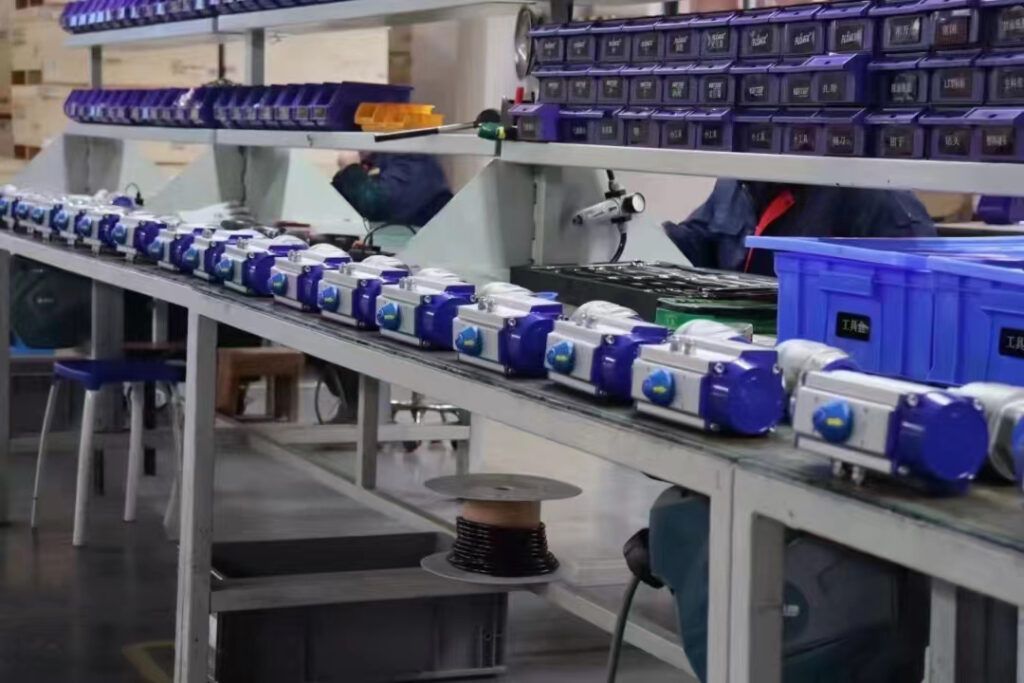แท็ก
ติดต่อเรา
ประเภทของตัวกระตุ้นวาล์ว: คำแนะนำโดย DELCO Valve
- เช้าเจียง
Valve actuators are pivotal in numerous industrial processes, transforming control signals into mechanical movement to regulate the flow of fluids, gases, and other materials. At DELCO, we are committed to providing high-quality valve actuators designed to meet diverse operational needs. This guide offers an overview of the four main types of valve actuators, helping you choose the right solution for your specific application.
Pneumatic actuators operate using compressed air to control valves. They are favored in manufacturing environments for their simplicity and ease of maintenance. Pneumatic actuators are known for their reliability and swift, accurate valve control, making them suitable for various industrial applications.
2. Hydraulic Actuators
Hydraulic actuators use hydraulic fluid to generate high force, making them ideal for heavy-duty applications. These actuators are commonly used in machinery such as cranes and excavators, as well as in industrial processes like oil and gas production. Their ability to manage substantial force and control fluid flow through pipelines is crucial for demanding environments.
3. Electro-Hydraulic Actuators
Combining the benefits of hydraulic and electric actuators, electro-hydraulic actuators are powered by an electric motor that drives a hydraulic system. This design provides precise control over valves while delivering the high force required for heavy-duty applications. Electro-hydraulic actuators are versatile and well-suited for a wide range of industrial uses.
Electric actuators use electricity to achieve precise control, making them ideal for applications requiring accurate adjustments. They are commonly used in the pharmaceutical and food industries for fluid control in processing and packaging, as well as in HVAC systems for managing air and water flow. Their precision and reliability are key advantages in these sectors.
Conclusion: Making the Right Choice
When selecting a valve actuator, it’s important to consider factors such as the type of fluid, pressure and temperature conditions, valve size and weight, and required precision. Additionally, consider the cost, availability of spare parts, maintenance requirements, and the level of manufacturer support.
DELCO’s diverse range of valve actuators is designed to meet various industrial needs, ensuring optimal performance and reliability. Whether you require pneumatic, hydraulic, electro-hydraulic, or electric actuators, DELCO provides solutions tailored to your specific requirements.
For more information on DELCO’s valve actuators and how they can enhance your industrial processes, please contact us today.



